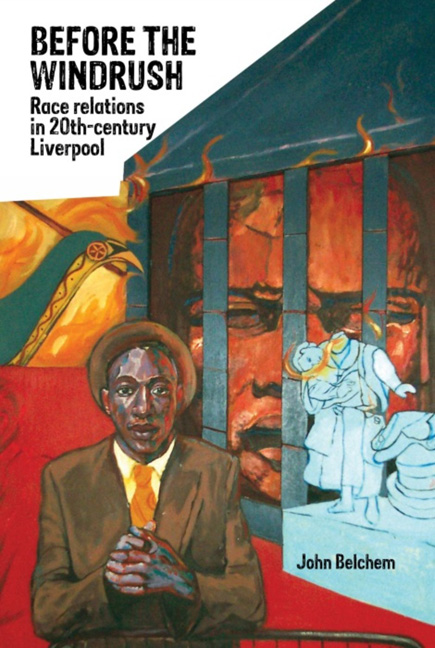Book contents
- Frontmatter
- Dedication
- Contents
- List of illustrations
- List of tables
- List of abbreviations
- Acknowledgements
- Preface
- Introduction: ‘The most disturbing case of racial disadvantage in the United Kingdom’
- Chapter One Edwardian cosmopolitanism
- Chapter Two Riot, miscegenation and inter-war depression
- Chapter Three Wartime hospitality and the colour bar
- Chapter Four Repatriation, reconstruction and post-war race relations
- Chapter Five Race relations in the 1950s
- Chapter Six 1960s: race and youth
- Chapter Seven The failure of community relations
- Chapter Eight ‘It took a riot’
- Sources consulted
- Index
Preface
- Frontmatter
- Dedication
- Contents
- List of illustrations
- List of tables
- List of abbreviations
- Acknowledgements
- Preface
- Introduction: ‘The most disturbing case of racial disadvantage in the United Kingdom’
- Chapter One Edwardian cosmopolitanism
- Chapter Two Riot, miscegenation and inter-war depression
- Chapter Three Wartime hospitality and the colour bar
- Chapter Four Repatriation, reconstruction and post-war race relations
- Chapter Five Race relations in the 1950s
- Chapter Six 1960s: race and youth
- Chapter Seven The failure of community relations
- Chapter Eight ‘It took a riot’
- Sources consulted
- Index
Summary
Encountering racial discrimination and disadvantage, ‘coloured’ colonial migrants who settled in Liverpool long before the arrival of the Empire Windrush in 1948, were denied the creative diversity enjoyed (at least in literary and cultural theory) by their post-colonial counterparts. Migration is now perceived as a creative ‘in-between’ without secure roots, the point of departure for existential trans-national routes crossing geographical, chronological and imaginative boundaries, enabling and facilitating multiple subjectivities. Hybrid and flexible, trans-national migrants (as the prefix suggests) do not simply cross national boundaries but transcend them, consigning to oblivion (not before time) spurious (and dangerous) notions of ethnic essentialism, cultural purity and biological racism. As seen by historians, however, this cosmopolitan outcome, so much to be desired, appears less assured and far from apparent in the early stages of decolonisation. Race and racism, previously shaped by a geographical segregation in which black and Asian people were seen as belonging out in the empire, not in Britain, were perforce recast amidst the ‘tremendous paradox’ (to cite Stuart Hall) of the timing of mass inward migration: at the ‘very moment Britain finally convinced itself to decolonise, that it had to get rid of the colonies, the colonised began flooding into England’. More pernicious than on-going anti-alien and anti-Irish attitudes, prejudice against ‘coloured’ colonials became pervasive soon after the arrival of the Empire Windrush, drawing upon top-down and bottom-up formulations of the threat posed to Britishness. Focused on Liverpool, where the colonial presence was far from new, this study offers a pre-history as it were – hence the book's title – of the deleterious race relations in Britain which accompanied (and besmirched) the otherwise vaunted transition from authoritarian empire to libertarian commonwealth.
As a great seaport, Edwardian Liverpool took pride in its ‘amazingly polyglot and cosmopolitan population’, located for the most part in its boisterous ‘sailortown’ adjacent to the waterfront – similar zones of inter-cultural contact (often with pubs and bars with Liverpool in their names) were to be found in seaports across the oceans, servicing the needs of trans-national maritime labour. ‘There is no city in the world, not even London itself’, Ramsay Muir recorded in the 700th anniversary history in 1907, ‘in which so many foreign governments find it necessary to maintain consular offices for the safeguarding of their exiled subjects’.
- Type
- Chapter
- Information
- Before the WindrushRace Relations in 20th-Century Liverpool, pp. xvii - xxiiPublisher: Liverpool University PressPrint publication year: 2014



